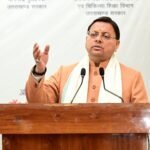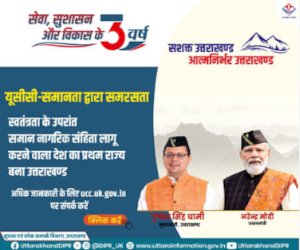Bangladesh caretaker government
DHAKA: The Supreme Court of Bangladesh on Thursday reinstated the country’s non-party caretaker government system for supervising national elections, marking one of the most consequential constitutional reversals in more than a decade. The verdict has reshaped the nation’s political landscape and revived a mechanism long regarded by citizens, jurists and election experts as essential for restoring public confidence in the electoral process.
The ruling was delivered by a bench headed by Chief Justice Syed Refaat Ahmed, who stated that the caretaker framework, originally introduced through the 13th Amendment in 1996, had played a pivotal role in ensuring neutrality, stability and trust during national polls. The system was abolished in 2011 by the then-government following a parliamentary vote, a decision that had faced criticism for years from opposition groups and civil society organisations.
In its detailed judgement, the Supreme Court observed that “free and fair elections cannot be imagined without public trust in the supervising authority.” The bench found the removal of the caretaker mechanism to have “weakened institutional safeguards” and contributed to repeated political crises. The court therefore directed that the caretaker system be re-incorporated into the constitution and operationalised for future election cycles.
According to the ruling, the upcoming 13th national parliamentary election will still be conducted under the existing interim government because preparations are too advanced to effect an immediate shift. However, the caretaker system will apply fully from the next general election onward. The court also urged the Election Commission and the Ministry of Law to begin work on revising relevant legal frameworks so that the restored system is implemented smoothly and without ambiguity.
Legal experts have widely welcomed the decision. A senior constitutional lawyer, speaking to the media said, “This judgement acknowledges a reality Bangladeshis have felt for years: trust in elections must be built on an independent structure. Reinstating the caretaker system sends a clear signal that political neutrality is non-negotiable.” Another analyst added that the verdict “creates an opportunity to correct long-standing structural deficiencies,” though he cautioned that successful implementation will depend on political consensus and administrative preparedness.
The caretaker government system, first introduced in the 1990s, allowed a non-partisan council, headed traditionally by a former Chief Justice, to administer the country during the election period, appoint key officials, and oversee the electoral machinery until a newly elected government took office. Supporters have argued that it helped prevent misuse of state institutions and ensured a level playing field for all political parties. Critics, however, have maintained that the model could invite unelected actors into governance and occasionally slow administrative functioning.
In its ruling, the Supreme Court addressed these concerns, noting that proper legal safeguards could prevent misuse while preserving the neutrality the system was designed to guarantee. The judgement emphasised that the caretaker administration must be subject to strict conduct guidelines, clear timelines and transparent operational rules.
Political parties reacted swiftly to the development. Leaders from several opposition groups called the verdict “historic” and expressed hope that upcoming reforms would enhance electoral credibility. In contrast, some government representatives said they would examine the full text of the ruling before issuing a comprehensive response, while reaffirming their commitment to constitutional processes.
International observers, including diplomats and election-monitoring bodies, noted that the judgement aligns with global expectations for impartial election oversight. They stressed, however, that the next phase, drafting laws, establishing the caretaker framework and coordinating with the Election Commission, will determine how effective the reinstated system proves in practice.
Public reaction across Bangladesh has been strong, with many citizens expressing relief that a mechanism they believed essential for fair elections is returning. Civil society groups have urged policymakers to avoid political confrontation and to approach the framework’s implementation with “honesty, discipline and national interest above all else.”
As the country moves toward its next electoral cycle, the reinstated caretaker model is expected to influence political alliances, campaigning strategies and the administrative structure of the Election Commission. Analysts say the verdict marks the beginning of a significant transition period in Bangladesh’s democratic journey.





















